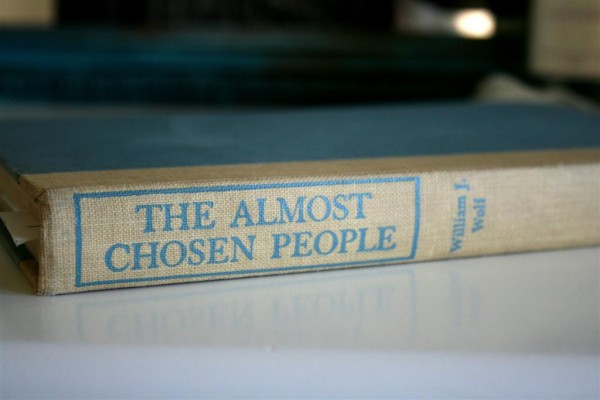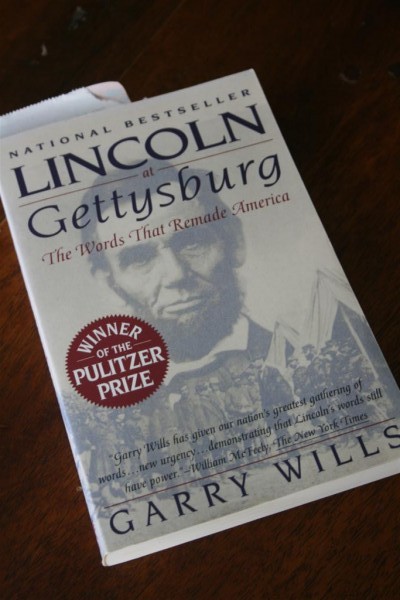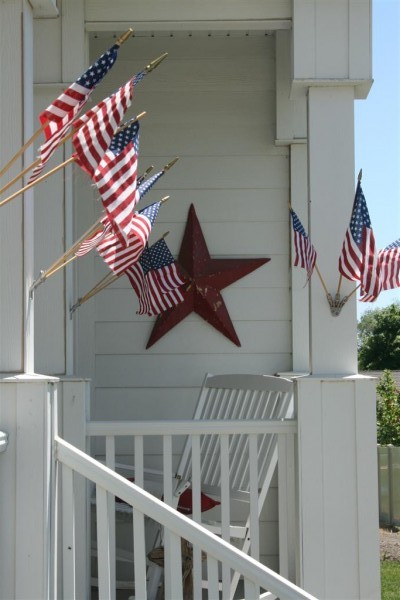The Almost Chosen People

Now for a quick review of the third book I’ve finished recently about Abraham Lincoln. Written by William J. Wolf in the 1950’s, this book is now out of print but was worth finding. The subject is the religion of Abraham Lincoln and I felt Wolf did a good job of turning to the words and writing of Lincoln himself to shed light on the observations of others or to demonstrate the differences between what Lincoln felt and what others said he felt.
I was impressed with the scholarship of this little volume and with the author’s commitment to rely first on primary sources to piece together Lincoln’s religious views. This book is a wonderful compilation of statements, writings, and speeches made by Abraham Lincoln which referenced God and Lincoln’s views/feelings toward religion. There were also references to conversations Lincoln had with friends and others which I had never before read. I found these stories highly interesting.
For instance, when the Battle of Gettysburg was underway most of the inhabitants of Washington D.C. left town, certain that the Rebels would soon march on the capital. Yet Lincoln remained at the White House. Later, in a conversation recorded by General James Rusling, who stood with President Lincoln in a Washington hospital at the bedside of General Sickles, the wounded man asked Lincoln if he was anxious about the battle at Gettysburg.
Here is Lincoln’s reply:
“No, I was not; some of my Cabinet and many others in Washington were, but I had no fears.”
When asked why this was, Lincoln hesitated but said, “Well, I will tell you how it was. In the pinch of the campaign up there, when everybody seemed panic-stricken, and nobody could tell what was going to happen, oppressed by the gravity of our affairs, I went to my room one day, and I locked the door, and got down on my knees before Almighty God, and prayed to Him mightily for victory at Gettysburg. I told Him that this was His war, and our cause His cause, but we couldn’t stand another Fredericksburg or Chancellorsville. And I then and there made a solemn vow to Almighty God, that if He would stand by our boys at Gettuysburg, I would stand by Him. And He did stand by your boys, and I will stand by Him. And after that (I don’t know how it was, and I can’t explain it), soon a sweet comfort crept into my soul that God Almighty had taken the whole business into his own hands and that things would go all right at Gettysburg. And that is why I had no fears about you.” (The Almost Chosen People, p. 124-125.)
This passage makes my heart sing. It makes me happy that Lincoln could go to God in a dark hour and feel that peace that passes understanding as he poured out his heart concerning the overwhelming task that had fallen to him of leading the country through the war. And I wonder, why haven’t we been taught this? Why is this experience not celebrated?
Lincoln never joined a church. He was undoubtedly a God-fearing man and a better Christian than most of us who openly profess to be religious. There is much evidence that he was a man of prayer.
The reading I’ve done has left me with deep respect for Lincoln’s religious views. I am inspired by him to be a better Christian. I am impressed with his ability to earnestly treat all men with the first 2 great commandments in mind. Lincoln was a singular man who lived his religion with integrity. I respect that and want to be like him. Here I am, once again drawing strength to live a better life from those who have lived long before me. The power of history continues to shape my heart.
The Almost Chosen People is highly recommended.


